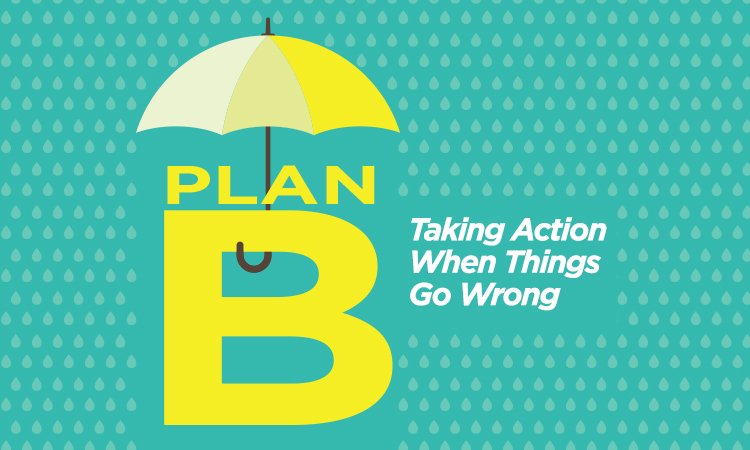Nicole Coon is the meeting & event manager for BATC-Housing First Minnesota who has experience in strategizing, designing, and marketing a variety of events including golf tournaments, board inductions, and galas. She leverages these events as a tool to reinforce the brand and key messaging for the organization. Her mission is to make things lovely and people feel extraordinary. She supports that through entertaining, volunteering, creating, and DIYing her home in Roseville. Currently President Elect of MPI Minnesota Chapter.
Plan B — Taking Action When Things Go Wrong
Interview with Nicole Coon, Meeting & Event Manager, BATC-Housing First Minnesota
No matter how hard we try or how much we plan, there’s always the potential for something to go wrong. When it comes to meeting and event planning, we know that while we can’t possibly prevent disaster, we can anticipate what could go wrong and formulate a backup plan when it does. Nicole Coon, Meeting & Event Manager for BATC-Housing First Minnesota, is a pro at being proactive and making sure she’s always got a Plan B.
Q. Tell me about your organization and what you do there?
A. I’m a meeting and event manager at BATC-Housing First Minnesota. We’re a trade association for builders, remodelers, vendors and suppliers to the industry.
Q. I’m sure there is no such thing as an error-free event. Do you have examples of things that often go wrong?
A. There really are no common errors. Often, things we can’t control force us to adapt—the weather, for example. We do a couple of golf tournaments every year. A couple of years ago, we had morning and afternoon tournaments planned and there was a torrential downpour before the AM gathering. We knew we couldn’t golf and risk tearing up the course, so we found an alternative date and emailed 250 golfers who’d been scheduled to play in the afternoon.
Another common reason for error is bad communication. Everyone gives and receives information differently. I’ve found it’s important to work as a team, pausing to make sure we answer everyone’s questions and that the team is working together to foresee what could go wrong and how they will respond if it does.
Q. What tips do you have for planners to avoid problems?
A. Communication while planning is key. Also, I typically don’t schedule myself to be anywhere specific at an event. In that way, I have the flexibility to move around and ensure things are going smoothly, jumping in where I’m needed. I also designate a lead for every team, empowering and trusting them to make decisions when things pop up and I’m not immediately accessible.
Q. If errors can’t be avoided, what can a planner do?
A. As much as is possible, we have a Plan B in place before events. It’s also important to remain calm if something does go wrong. If an error involves a guest, we make a point of expressing our thanks for their patience and understanding. We want the experience to be a pleasant one for them. Afterward, we’ll look at what happened and see what we can learn from the experience and how we can avoid duplicating a mistake in the future.
Q. Any other tips or advice?
A. Yes, it’s important to practice self-care. Getting enough sleep, exercise, and nutrition. People not in the industry don’t always understand all the planning that goes on behind-the-scenes. It’s important to learn how to tell people “no” sometimes to avoid stretching yourself too thin.










